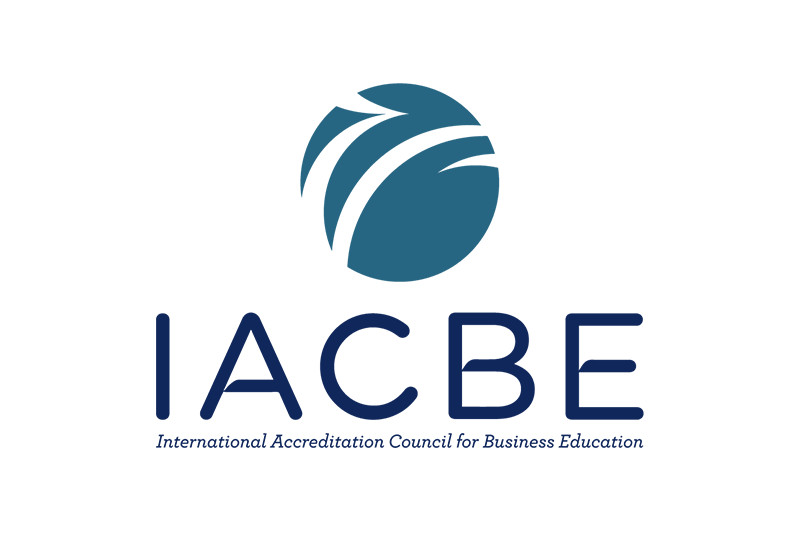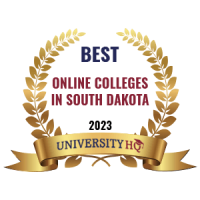Master of Business Administration
Set Yourself Up for Success
Overview
The skills gained in an MBA program can set you up for success. In today’s business-focused world, organizations recognize the value of hiring MBA graduates.
Benefits to earning a
Master’s Degree in Business Administration:
Improve your communication and conflict management skills
Expand your professional network
Stand out from your peers
Become a more effective, adaptive leader
Increase your earning potential
What’s the Difference at DWU?
-
100% online
Complete your coursework anywhere, anytime. -
7-week courses
Courses are accelerated, so you only focus on the skills that are relevant to the business world today. -
Start class now.
After you are accepted, you can start taking classes within seven weeks. This means you can start when it’s convenient for you. -
No GRE, GMAT or Thesis
Graduate entrance exams are not needed for admission, and you will not have to write a thesis at the conclusion of this program. -
12 months
If you attend full-time, you can complete the program in just one year. If you need greater work-life balance or a more flexible schedule, you can take classes part-time. -
Designed by working professionals for working professionals
Our MBA program is designed specifically for working professionals looking to increase knowledge, skill and ability. With experienced faculty, relevant courses and tons of flexibility, you will be successful in this program, even if you work 40 or more hours per week. -
Auto Acceptance
Auto acceptance for DWU graduates with at least a 3.0 undergraduate GPA.
Pick Your Path
Earning an MBA can change your life professionally. Depending on your field, you can gain professional skills and qualifications that will set you apart.
Your MBA will allow you to focus in one of three areas:
- Strategic Leadership
- Athletic and Activities Administration
- Nonprofit Administration for Ministry Leaders
Professional Development
Interested in just taking one MBA course for professional development? We’ve got you covered! Take one course, like conflict management, coaching or high performing teams, by enrolling as a nondegree seeking student. If you love it, sign up to complete the entire MBA or add courses as needed. Visit with your admissions representative about your options.
Further your professional career with practical and relevant courses.
Master of Business
Administration - Strategic Leadership
The MBA in Strategic Leadership is distinct in its strong focus on adaptive leadership, management and technical business skills. You will be positioned to make an immediate impact in your organization and ascend more quickly to your professional goals. The program requires 36 coursework credit hours.
BUS 617 Employee Life Cycle
BUS 625 Practical Economics
BUS 626 Data-Informed Decision Making
BUS 695 Strategic Business Analysis and Management
BUS 650 Financial Analysis
BUS 655 Project Management
BUS 656 Contemporary Marketing
BUS 636 Conflict Management
BUS 640 Managerial Accounting
BUS 606 Adaptive Leadership and Change Management
BUS 635 Coaching and Mentoring in the Workplace
BUS 605 High-Performance Teams
Want to earn a certificate in strategic leadership? Complete just two courses in each: management, quantitative literacy and leadership. Visit with our Graduate & Online Enrollment Coordinator about your options.
Master of Business Administration – Athletic and Activities Administration (AAA)
The MBA with AAA certification will offer you practical and relevant skills needed to excel in workplaces with specialized leadership and management opportunities. You will learn and apply skills for developing and managing high functioning teams, planning events, managing facilities, raising funds, working with their public, using contemporary skills for promotion and more. With this program, you will earn an MBA with a concentration in Athletic and Activities Administration. The program requires 36 coursework credit hours.
BUS 625 Practical Economics
BUS 628 Advanced Public Relations and Promotion
BUS 629 Revenue Generation and Management
BUS 627 Event and Facilities Planning and Management
BUS 617 Employee Life Cycle
BUS 626 Data-Informed Decision Making
BUS 695 Strategic Business Analysis and Management
BUS 656 Contemporary Marketing
BUS 636 Conflict Management
BUS 606 Adaptive Leadership and Change Management
BUS 635 Coaching and Mentoring in the Workplace
Master of Business Administration - Nonprofit Administration for Ministry Leaders
Earning an MBA with an emphasis in nonprofit administration will help you elevate your leadership and business management skills within a church setting. Projects and coursework will be focused on practical application, and you will have opportunities to network with others in the program to create a synergy that lasts beyond the program. The program requires 36 coursework credit hours.
NPA 620 Governance, Personnel and Volunteer Management
NPA 661 Communications and Community Outreach
NPA 610 Financial Resource Development
BUS 625 Practical Economics
BUS 606 Adaptive Leadership & Change Management
BUS 626 Data-Informed Decision Making
BUS 655 Project Management
BUS 636 Conflict Management
BUS 605 High-Performance Teams
Accreditation and Rankings

The Musick Family Department of Business at Dakota Wesleyan University has received specialized accreditation for its business programs through the International Accreditation Council for
Business Education (IACBE) located at 11960 Quivira Road, Suite 300, Overland Park, KS 66213. This program is also affirmed by NC-SARA.
Click Here for a listing of accredited
programs.
We are honored.
Best Online MBA Programs
Fortune
Best Online MBA Programs
U.S. News & World Report

Best Online College in
South Dakota

Top No Application Fee
Online MBA
Admission Requirements
To be eligible for admission, you must meet the following criteria:
- A bachelor’s degree from an accredited institution
- If your bachelor’s degree is not in a business-related field, you will have an opportunity to complete the required leveling courses through Peregrine Academic Services. The program is self-paced and can be explained in further detail by your admissions representative.
- Minimum undergraduate cumulative grade point average (GPA) of 2.75.
After you have completed the online application, we will contact you to explain how to complete the submission process. You will be asked to provide:
- An official transcript from your bachelor’s degree-awarding institution
- A current resume
Complete the FREE online application now!
Paying For Your Degree
Earning a degree is a great personal investment. There are a few common paths some of our students take to finance their online education at Dakota Wesleyan University.
There are a variety of scholarship opportunities available to you. Visit with your admissions representative to learn more.
Your Contacts
At DWU, we take the time to establish personal and meaningful connections with you. As you explore the MBA program, you’ll work with an admissions representative and our program director that will focus on you and your goals.














